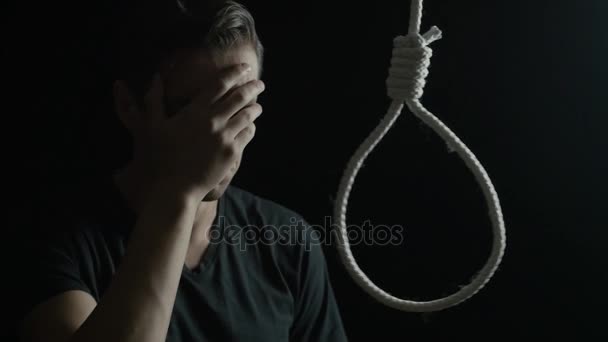
•Suicide takes a life every 40 seconds across countries
THE World Health Organisation (WHO) has revealed that Nigeria has the highest suicidal rate among African countries in 2016 with over 17,000 lives lost to suicide.
In a new report that estimated the cases of suicide globally, WHO noted that, across the world one person takes their life every 40 seconds.
The report was titled, “Suicide in the World: Global Health Estimates.” It was released on Monday ahead of the World Suicide Prevention day coming up on Tuesday.
Hanging, pesticide self-poisoning and shooting were the three commonest methods by which people commit suicide, the report reveals.
Giving the global estimates, it noted that about 800,000 people die every year by the act.
For Nigeria, WHO said 17,710 cases of suicide were recorded in 2016 at all ages.
Of these number of cases, 8,410 were females while 9,300 were males. The percentage ratio of men to women was 53:47.
The figure puts Nigeria as the leading country in the African region. It was followed by Ethiopia and South Africa with 7,323 and 6,476 cases respectively.
However, there are other countries that reported very high cases of suicide.
In the world, the top five countries were being led by India with more 2,15 000 cases in 2016, followed by China that had a total of 136,267 cases.
The other three countries are America, the Russian Federation and Japan. Nigeria followed Japan being the sixth highest globally.
“Suicide is a serious global public health issue. All ages, sexes and regions of the world are affected (and) each loss is one too many,” the WHO’s report said.
Suicide rate highest in high-income countries was the second leading cause of death among young people aged between 15 and 29 years, after road injury.
And among teenage girls aged 15 to 19, it was the second biggest killer after maternal conditions. In teenage boys, suicide ranked third behind road injury and interpersonal violence.
 “Every death is a tragedy for family, friends and colleagues. Yet suicides are preventable. We call on all countries to incorporate proven suicide prevention strategies into national health and education programmes in a sustainable way,” said WHO Director-General, Tedros Adhanom Ghebreyesus.
“Every death is a tragedy for family, friends and colleagues. Yet suicides are preventable. We call on all countries to incorporate proven suicide prevention strategies into national health and education programmes in a sustainable way,” said WHO Director-General, Tedros Adhanom Ghebreyesus.
“Every death is a tragedy for family, friends and colleagues. Yet suicides are preventable. We call on all countries to incorporate proven suicide prevention strategies into national health and education programmes in a sustainable way,” said WHO Director-General, Tedros Adhanom Ghebreyesus.“Every death is a tragedy for family, friends and colleagues. Yet suicides are preventable. We call on all countries to incorporate proven suicide prevention strategies into national health and education programmes in a sustainable way,” said WHO Director-General, Tedros Adhanom Ghebreyesus.
“Progress in suicide prevention activities in some countries, but much more is needed.”
Outlining some strategies to adopt, WHO cited pesticide regulation as a “highly effective strategy” to be used in curbing the rate. It added that such restricting access to pesticides that are used for self-poisoning would bring down the number of suicides.
“Key interventions that have shown success in reducing suicides are restricting access to means and educating the media on responsible reporting of suicide.
“There is now a growing body of international evidence indicating that regulations to prohibit the use of highly hazardous pesticides can lead to reductions in national suicide rates,” the report stated.
Other interventions the globally health body proposed were to implement programmes among young people to build life skills that enable them to cope with life stresses and to identify early, manage and follow-up people at risk of suicide.
The rate of suicide is by no means ceasing in Nigeria as the country has recorded not less than 42 cases as of June 2019, according to media reports.
The major method used in the self-killing was the intake of snipers, a local insecticide used to mortalise rodents such as rats and for agricultural purpose.
In reaction to the suicide spree among the youths in Nigeria early this year, the National Agency for Food and Drug Administration and Control (NAFDAC) banned the hawking of agro-chemical formulations which include sniper in open markets and supermarkets nationwide. It stated that their sales in those markets were prohibited from September 1.
But, it is yet to be proven if snipers and other pesticides are out of the Nigerian open markets and supermarkets.
Source: ICIR Nigeria
